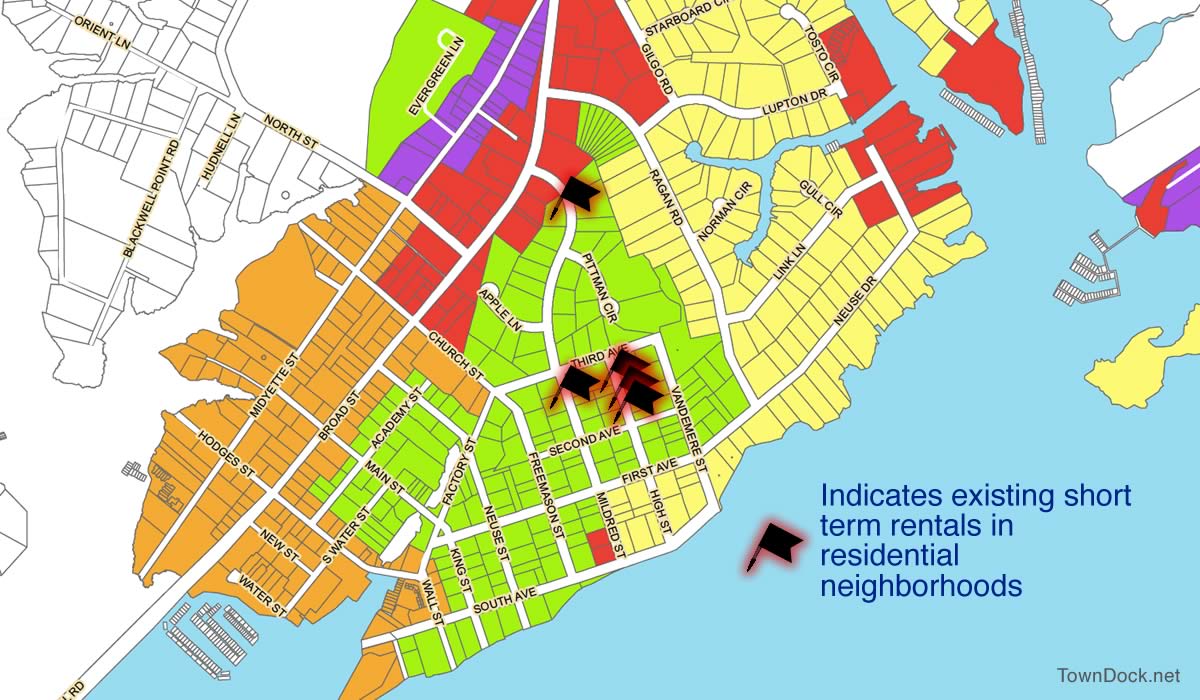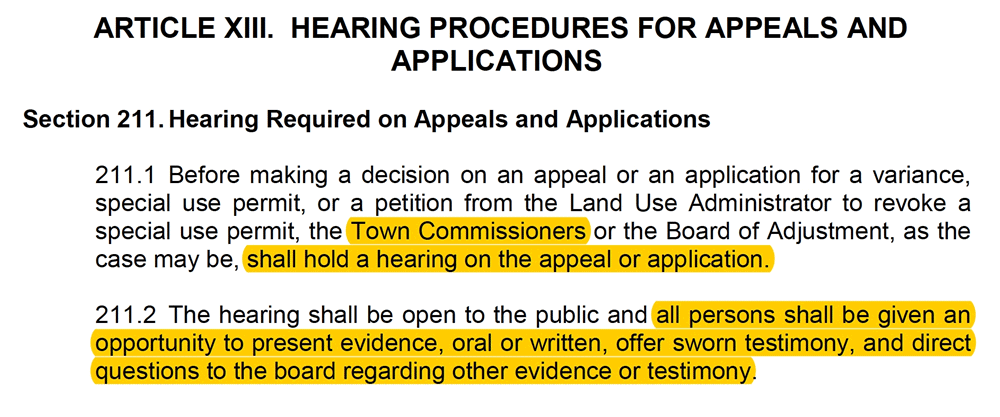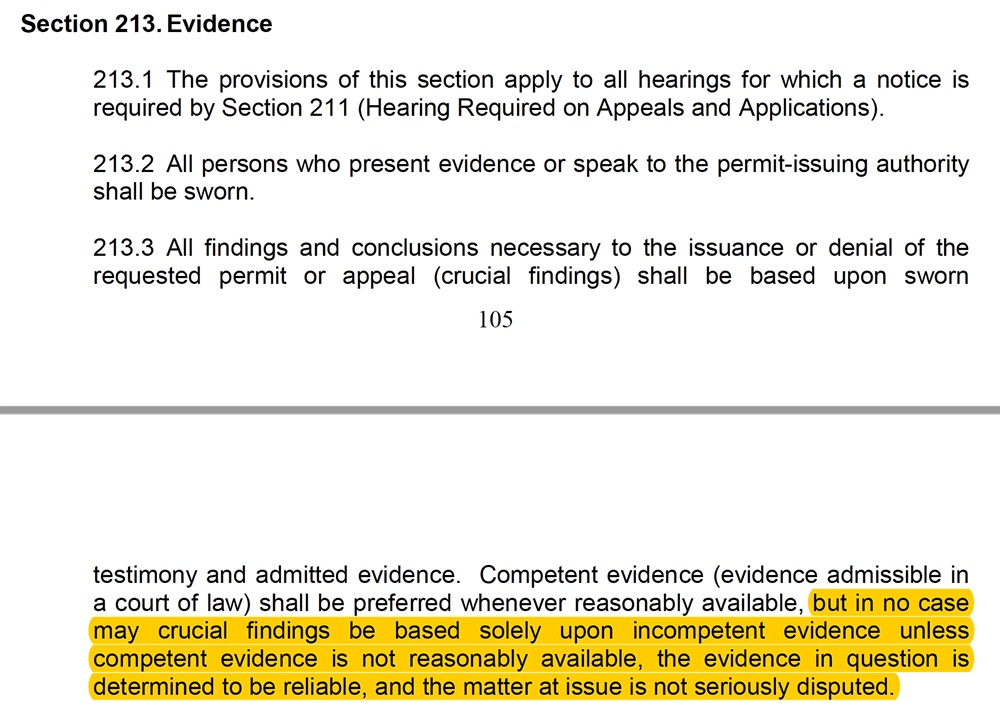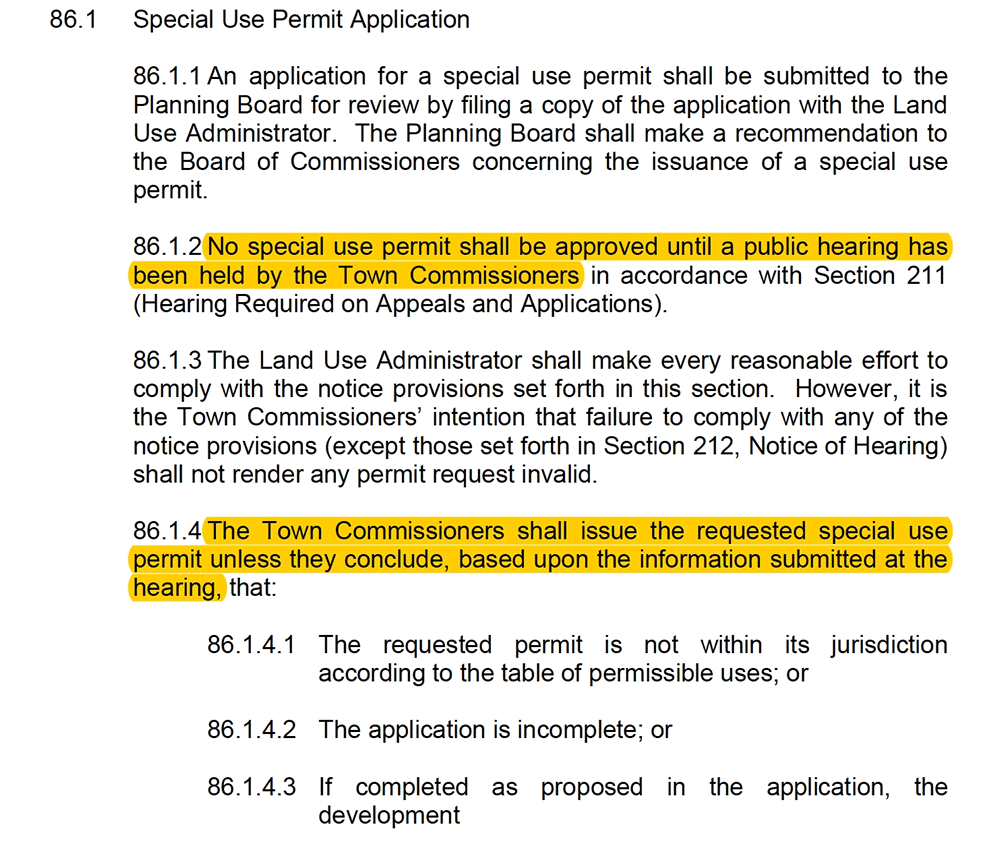It's Wednesday April 17, 2024
News From The Village Updated Almost Daily
January 30, 2018
AQuarterly Workshop January 25 was initially a meeting to discuss long-term goals for the Town. It ended up covering some more immediate concerns too.Members of the public listened, questioned, and commented as Commissioners and the Town Manager discussed another Special Use Permit, ongoing projects at Whittaker Creek, and how to handle fuel spills in the harbor.
Short Term Rental Special Use Permit raises procedural questionsOne of the more contentious issues was a request for a Short Term Rental Special Use Permit (STR-SUP) for 309 High St, making it the fifth allowed in a residential neighborhood in fourteen months. STRs provide lodging for tourists for any time period less than 30 days.
Town Manager Miller started by telling the Town Board that at the previous Planning Board meetings, no one had presented evidence that would require the Commissioners to deny the SUP. When the Commissioners opened the public hearing, there was only one speaker.
Lou Athey, who with his wife Lucy owns the Inn at Oriental, began by saying it sounded as though he were late to the process, but nonetheless would tell the Commissioners his objections. As a business owner whose livelihood is in the lodging industry, he said he is concerned at the number of STR-SUPs that have been granted in the residential district. “The more you go down this path,” he said, “the more likely it is there will not be a B&B rental in Oriental, as we’re the only one here now that’s operating.”
Athey asked if an SUP could ever be revoked, or if there were no recourse for granted SUPs. Miller said an SUP could be revoked only if it were being used in violation of the issued permit. Athey said, “so basically, you could turn the whole town into a short term rental?”
The five short term rental SUPs that have been granted since November 2016.Miller indicated that unless presented with evidence against the SUP, then yes, the R2 and R3 residential neighborhoods could be filled with short term rentals. To not have an SUP granted, Miller believes residents would have to present evidence which she defined as “in the form of an appraisal from a realtor or a study that is published or something like that, brought at the time that the special use permit is requested.”
There are no expiration or renewal dates for Short Term Rental Special Use Permits. Once granted, they remain with the land even if the property changes hands. In effect, under current law, a residence becomes a hotel (in a residential neighborhood) permanently.
Separate from the Short Term Rental issue, Lou Athey pointed out a flaw he saw with the SUP process, citing the SUP granted for the New Village Brewery next door to the Inn.
When the Brewery originally sought an SUP, Athey and his wife raised no objections and sought no conditions. Currently he objects because what he thought was going to be a microbrewery has “now extended to a venue for outdoor music, live and recorded, and corn hole tournaments that go on well into the night.” Athey told the Board that half of his guest rooms are impacted by the activities. He later told TownDock.net that a number of customers complained about the noise which he had not anticipated happening.
(TownDock.net later spoke with New Village Brewery owners. They said they had received noise complaints from the Inn before, and had taken action, but were unaware that it was a continuing issue. They said they had sought to limit any music or noise to no later than 9:30 pm and had permits for such. The owners of the Brewery said they were willing to talk with their neighbors.)
Though the New Village’s SUP was for opening a brewery, it is the Short Term Rental SUPs that are causing the most consternation of when and where the public may voice objections. Thursday night was a prime example.
SUPs and the GMOIn September of 2016, the Town Board considered changing the GMO so that short term rentals would be allowed without an SUP in R2 and R3 neighborhoods, as is the case on property that is zoned for commercial use MU amid MU-1. At the public hearing for that GMO change, the public outcry was such that the Board voted against the measure, sticking with the rule requiring an SUP for an STR. One of the major concerns was changing the nature of the residential neighborhoods. Since then, six applications have been submitted. Five were granted: 2 on Mildred St. and 3 on High Street. One request was withdrawn; the owners decided to live in the home instead of rent it out. None have been denied.As happened with the Atheys at this meeting, in the past, other members of the public who have raised objections at public hearings have been told they should have given evidence at earlier Planning Board meetings. Minutes from the December 7th Planning Board Meeting show Commissioner David White asking that the minutes reflect that no members of the public attended the Planning Board meeting to oppose the SUP.
By law, adjacent landowners are notified by the Town when neighbors submit an SUP application. While it is pragmatic to speak early in the process, not everyone who might object is an adjacent landowner and so may not be aware early on. (Planning Board agendas are often not made public until the day of or day before its meetings.)
The Town Manager and some commissioners have stated that to object to an SUP, one must present “evidence” at the Planning Board meeting. A review of the GMO language appears to indicate otherwise.
According to the GMO, it is the public hearing held by the Town Commissioners where the public may give testimony. (The Town Board public hearing, by law, must be advertised in the local paper of record (The Pamlico News) at least 10 days in advance.
The Public’s rights at a public hearing (above directly from the GMO.)As she has before, Town Manager Diane Miller outlined on Thursday the criteria for “competent evidence” given by the public which she defined as coming, “in the form of an appraisal from a realtor or a study that is published or something like that.” While the GMO speaks of competent evidence as Miller says, it also allows for what is called “incompetent evidence.”
Evidence defined by the Growth Management Ordinance (above directly from the GMO.)In short, the GMO language allows information coming as late as the public hearing to be used to deny a permit. If information provided at a Public Hearing were not to be considered, the reason for the Public Hearing is unclear.
The GMO states Commissioners can use evidence presented at a public hearing in their decision to deny or approve an SUP (above directly from the GMO.)Despite being able to use evidence raised in a public hearing, as the GMO says, the Town Board chose not to consider the objections of the Atheys.
The SUP was approved 5 – 0, marking at least the fifth time since November 2016 a Short Term Rental Special Use Permit was granted in a residential neighborhood.
Two Whittaker related projectsTown Commissioners delved into two separate projects at Whittaker Point. Jim Blackerby, geologist who lives creekside, and Dr. Lexia Weaver, a coastal restoration specialist with the NC Coastal Federation, were invited to speak to the Board and the public.One project concerns a private effort to dredge Whittaker Creek channel. However, the Friends of Whittaker Creek are waiting to see what happens with Whittaker Point before proceeding.
In June 2017, regulators rejected efforts by Whittaker Point land owners to bolster the Point. To preserve it, and the protection it offers the channel, the owners have considered donating the land to the Town. Oriental, as a municipality, has more grant opportunities than private entities. The Board, then and now, wants to ensure it has access to grants before considering a land donation.
Mr. Blackerby’s presentation explored the extent of the erosion, using maps from Oriental’s History Museum and satellite maps from Google. Using that data, Blackerby illustrated a land loss of nearly 15 acres since 1934. His current estimates show there are approximately 3 acres remaining.
File photo from July 2017 showing erosion on Whittaker Point.Dr. Weaver, representing the NC Coastal Federation, said there were several possibilities for stabilization but suggested wave attenuators may be the best option for Oriental.
Missy Tehnet had some reservations about the project. “It’s a long term investment for the Town if the Town takes it on, and I appreciate the work that Mr. Blackerby has done, but I’m not sure the dots connect exactly as he says they do.” Addressing him, she said “you have very much a vested interest in living where you live, in this project, and having the Town do it.”
Town Manager Miller was quick to say the Town had not taken on the project nor were they going to “foot the whole bill.” Rather, the Town was sharing the information with the public because “it was time for the discussion to be had.”
Miller and the Board agreed that more studies were needed before proceeding though Tehnet maintained they should be conducted by other credentialed professionals.
A complete report on both Whittaker Creek projects, including Mr. Blackerby’s presentation, will be forthcoming.
Reps from US Coast Guard talk harbor oil spillsMembers of the United States Coast Guard (USCG) were invited to talk to the Board about cleanup of spills in the harbor. Oil blew into the harbor in December, prompting Town Manager Miller to put out a call that eventually brought the USCG to town.
Residents and the Town Manager have been frustrated by harbor spills in the past, both their origin and the cleanup. The Town wanted to know how they could contain spills, manage initial cleanup efforts, and establish a viable chain of custody without incurring legal or financial responsibility for the spill event.
Marine Science Technicians 1 Hasenauer and Blackwell are part of a four man response team in Atlantic Beach. When a spill is called in, they are sent to investigate. There are closer USCG teams, for example in Hobucken. However, their mission is search and rescue; they are not equipped for pollution investigation, the primary directive of the response team.
Town Manager Miller asked what the Town can do when the smaller spills happen without it becoming “an EPA nightmare.” Miller had been told that the Town cannot touch a spill, though it is in their harbor, without incurring legal ‘ownership’ of the spill.
A diesel spill recovered from the water by Sorbent Pads is not considered to be hazardous waste by the EPA. However, there is special training, required by OSHA to do this: HAZWOPER or Hazardous Waste Operations and Emergency Response.
MST1 Hasenauer suggested they, the Town and the USCG, act as a team to tackle these events. They will propose a program where the Town will act as a proxy and go through the proper training, including use of booms, non-hazardous waste disposal, and reimbursement methods.
They also said that USCG legal procedures are different from NC DEQ procedures. Pictures and videos of a spill are admissible as evidence in an investigation. Calling the 800 number posted at the docks is the best way to initiate a response. 800-424-8802 rings an individual in Washington, DC. Be prepared to answer many questions, very quickly. The call, and information, is forwarded to the command center in Wilmington, and then to the local response team based at Fort Macon.
MST1 Blackwell emphasized that those calling the 800 number are protected by the privacy act and would remain anonymous. For this reason, if a citizen is calling in, even if it is against a neighbor and they don’t want trouble, he advised callers still give their contact information. When investigators arrive, the spill may have shifted due to wind or they may need further clarification.
In the coming months, Town Manager Miller and the USCG will work together to initiate a program that addresses the needs of Oriental’s harbor.
What Rules, Regs For Dog Park?The dog park behind the fire station on Straight Road is now in place. But, even though its fencing is up, the park has not yet officially opened for use. A water fountain will be installed when the weather is more temperate. And there are rules and regulations to be set .Dog Park on Straight Road, in use.Thursday, the Town Board considered a first draft of Town policy for †he Dog Park. Among the items being suggested:
* To use the park, dogs would have to be registered with the Townt and would have to have their rabies tags on them at all times.
- Owners of dogs using the park would pay a yearly registration fee: $5 for the first residential dog in a household and $5 for any extras.
- Visiting dogs would be welcome at $10 per dog per year.
- The dog park would have a coded lock. The key code would be given once registration is complete.
A list of the proposed rules and regulations and a draft of a brochure are available at Town Hall and in the related links below.
Public CommentsSeveral residents attended to give their opinion of other items that should be on the agenda for the coming quarter.
- Bill Hines asked the commissioners to quickly issue a response to Governor Cooper stating the Town was against the Seismic Blasting that is being proposed off the coast of NC.
- Hines also asked that the Town look into installing kayak racks. Miller said the Harbor Water/Fronts Committee is already looking into racks to accommodate 18 kayaks. She said more information should be forthcoming at the next meeting.
- Grace Evans asked if there were a way to designate parking areas for vehicles with and without trailers at the Wildlife Ramp.
- Larry Summers would like the Commissioners to extend the dinghy dock and to also redo the net house near Town Dock 2.
- During the public comments, Sandy Donaldson, a member of Sea Harbor Yacht club and resident of Dolphin Point, said Commissioner David White should recuse himself of any votes involving the Whittaker Creek Dredging Project as he has a direct interest in the project. Donaldson said the town should not contribute funds to that project. (The Town is not involved in paying for the dredging project.)
Changes to the GMO for mobile homesThe Board held a public hearing for comments on the proposed correction to the GMO regarding mobile homes.Miller discussed the changes at the January Town Meeting.
There were no public comments on the change. Commissioners voted to make the change, bringing the GMO back into compliance.
The next Town Board meeting is February 6th at 7p.
Related Information





